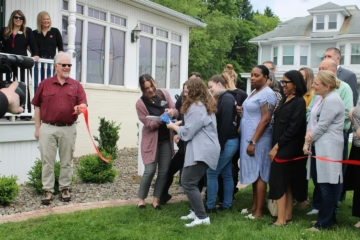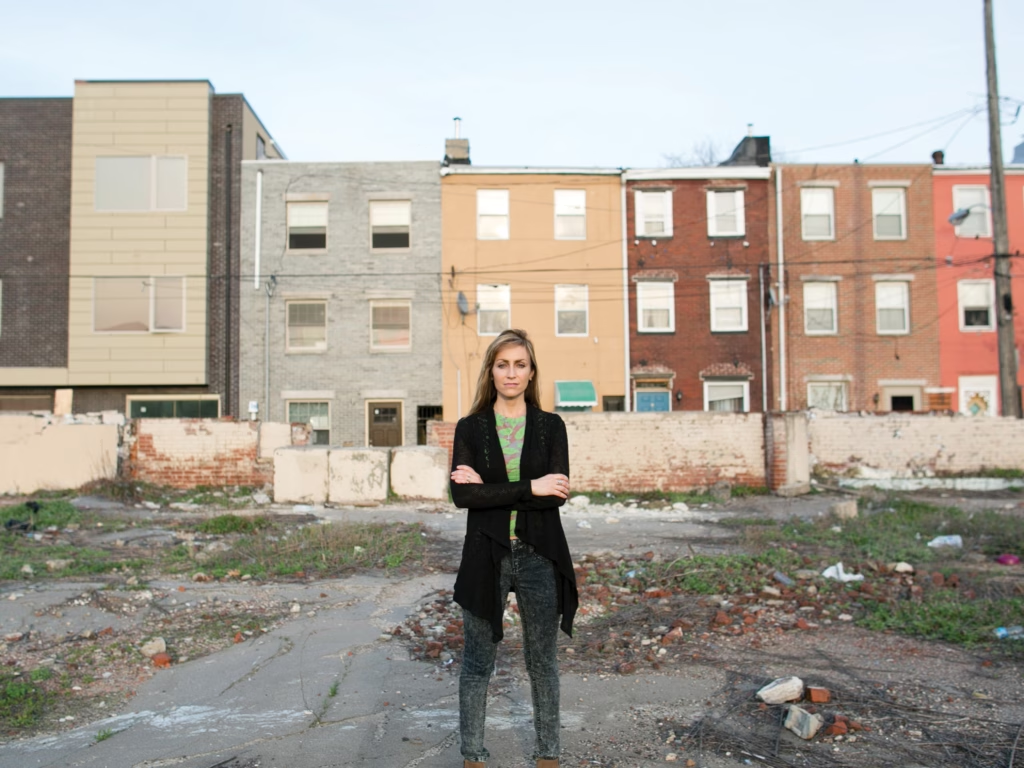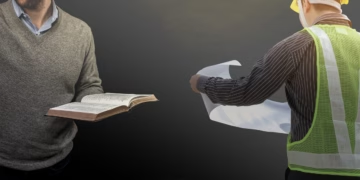
I grew up in the beautiful Pocono Mountains of Pennsylvania, and now I live in urban Philadelphia. As the daughter of a park ranger, my childhood playground was a 2,000-acre landscape of lakes, streams, forest, and fields that inspired me to discover a relationship with the Creator. When I fell in love with the city and its people and was called by God to root myself among city dwellers almost 20 years ago, I underestimated the environmental contrast I would experience.
In Philly, I was energized by the high concentration of diverse people and motivated by the church-planting mission. But the concrete surroundings were challenging to me at times, especially as a parent.
I saw kids cooped up indoors during long winters and sweating through summers without a lot of grass, cool breezes, and wide-open spaces to run. I interacted with many other families that experienced health problems, such as asthma and allergies. I met mothers who worried about their children picking up used needles and condoms in concrete parks. I found that many of my neighbors lacked easy access to fresh fruits and vegetables, but had giant TVs in their living rooms. It seemed to me that the concrete jungle bred a hunger for instant gratification and reliance on technology more than on the organic processes of the earth.
Even though urban communities are more sustainable than rural and suburban settlements, urbanization takes a toll on the environment. Concentrated amounts of industrial and household waste can pollute air, water, and soil, and the poor seem to bear the negative impact more than the wealthy.
All over the world, it’s the poor who live in the more environmentally dangerous areas: near the trash dump, on land unable to be farmed, in the high-rise project, near the power plant. Meanwhile, the wealthy enjoy lush parks, efficient sanitation services, and the ability to buy organic produce and quality health care.
When we love one another, as Jesus demonstrates, we see the interconnectedness of all of creation and God’s longing to restore the broken relationships between us.
Philadelphia is no exception: In my city, there is less access to healthy food, medical care, open green spaces, and safe places to gather in areas where less-privileged families live, work, and worship. More than 44,000 abandoned and blighted properties increase a sense of hopelessness and attract crime in these neighborhoods. There seems to be a direct relationship between land degradation and high rates of violence, addiction, unemployment, disease, and other social ills.
Justice and Love
When we love one another, as Jesus demonstrates, we see the interconnectedness of all of creation and God’s longing to restore the broken relationships between us. Recently, the dual convictions to care for the poor and the earth have been called environmental justice, and in my faith community, Circle of Hope, I have learned that there is no real justice without love.
In this spirit, several Circle of Hope people—myself included—banded together a few years ago to form a compassion team called Take Back Vacant Land. Our goal was to help get abandoned properties into the hands of neighbors who wanted to create gardens, playgrounds, and affordable housing in their communities. We joined a strong coalition of other faith and community groups that raised awareness for environmental justice and proposed legislation for the creation of a land bank in Philadelphia.
In December 2013, that legislation was passed by City Council, making Philadelphia the largest city in the country to create an entity whose main function is to facilitate the sale of vacant properties for positive development. Our hope is that the land bank will give Philadelphia some of the tools we need to reclaim our most vulnerable neighborhoods from blight.
The cause of environmental justice is important to me because I want more opportunities for all people to know the Creator and respond to his saving love. I want all people to have the chance to experience a restored relationship with God.
Like Paul says in Romans 8:22, all creation is groaning in eager expectation for the children of God to be revealed. Many Philadelphia neighborhoods are groaning for the children of God to be revealed, and we are taking that opportunity to reveal God’s glory in the earth and provide for basic needs.
By following in the footsteps of the firstborn of all creation — Jesus — we demonstrate a restored relationship with God that flourishes around us in restored relationships with one another and with the rest of creation. By helping people stay rooted in their neighborhoods and enabling them to look beyond survival to caring for the next generation, we are empowering one another to get into a healed life with God and living the gospel of redemption that comes through Christ. Filled with people whom God loves, the city really is a place of beauty, and the Holy Spirit keeps empowering us to be the people that Isaiah prophesied — people who “will be called repairers of broken walls and restorers of streets with dwellings” (58:12).
Originally published as “Rooted and thriving: Seeking environmental justice for urban neighborhoods” for the Spring/Summer 2015 issue of BIC U.S.’ In Part magazine.



